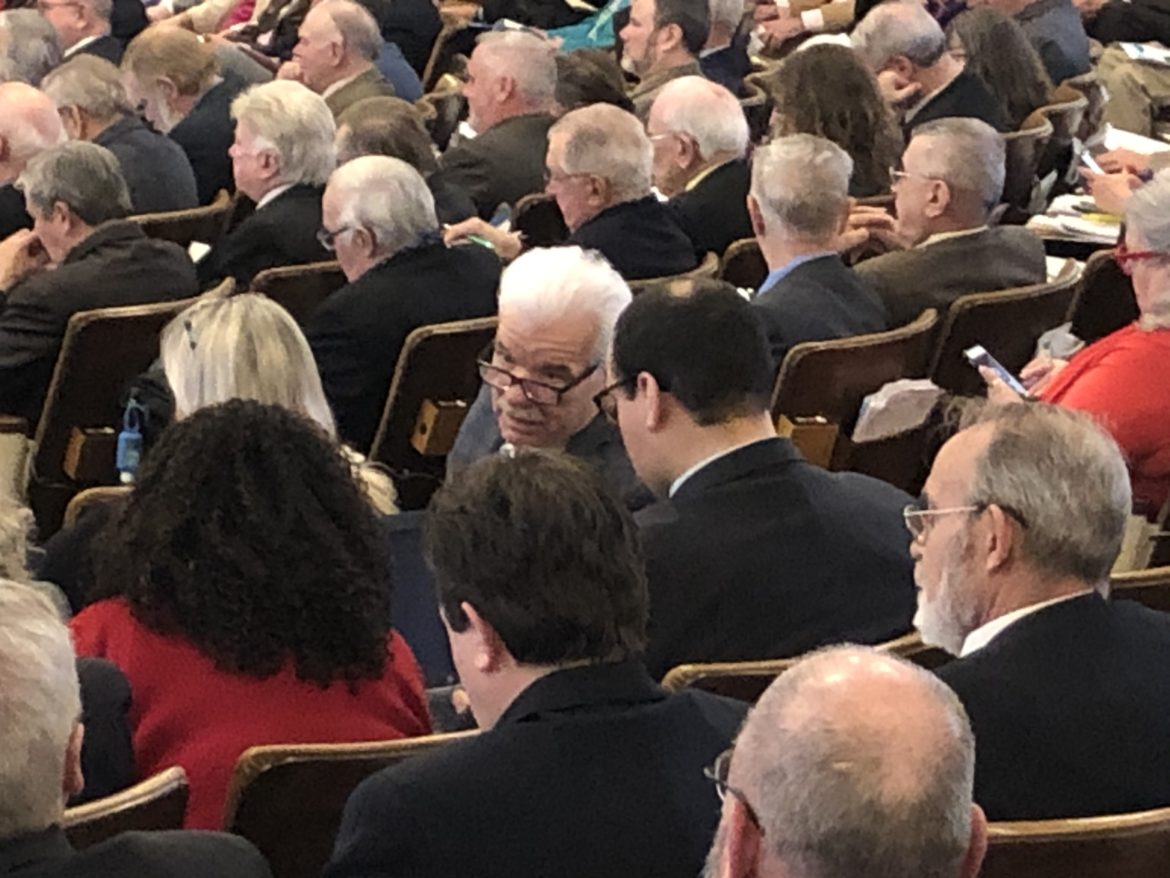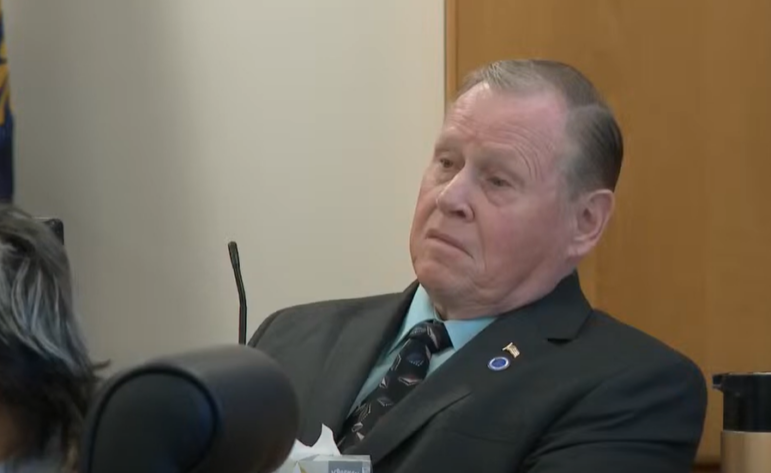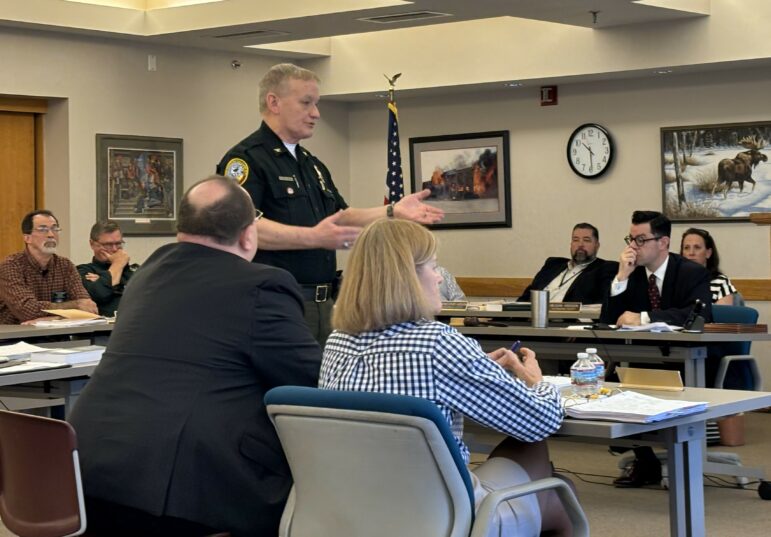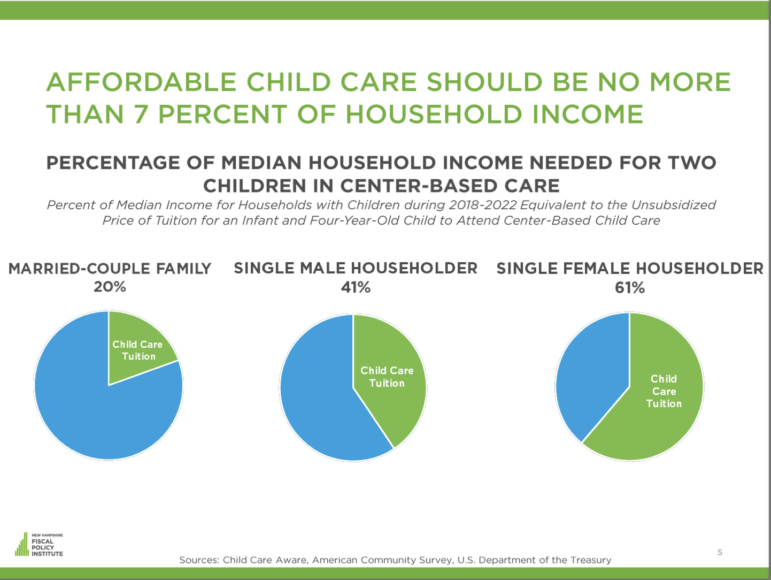By GARRY RAYNO, InDepthNH.org
CONCORD — The House Wednesday voted to end child marriage by increasing the age to legally marry to 18 years old from 16.
Lawmakers debated the bill for more than an hour as representatives fought over numerous amendments before settling on a bill that would simply raise the marriage age two years from what lawmakers approved two years ago.
Opponents of the bill tried to carve out exceptions for pregnancy, for 16 and 17 year olds who currently have marriage plans and for emancipated youths.
All failed.
Opponents said changing the marriage age would create confusion as the age of consent for sexual relations is 16 years old while they have to wait until they are 18 to marry.
“Some of us do think you should not have sexual relations outside of marriage,” said Rep. Deanna Jurius, R-Meredith.
“One of the possible consequences of having sex is pregnancy, but you are unable to marry if you are under 18.”
But supporters said children who marry, largely young females, are more likely to be divorced, have more children, drop out of school and earn low wages.
“Child marriage,” said Rep. Chuck Grassie, D-Rochester, “chains these children to a lifetime of poverty.”
Child marriage usually involves a minor female and an adult male, supporters said, and is more likely to involve domestic abuse.
“Child marriage a widespread practice that once reached every corner of
the globe,” said Rep. Dennis Ruprecht, D-Landaff, “and is a threat to the
well-being of children.”
The practice occurs in New Hampshire he noted, with more than 800 such
marriages between 2000 and 2015.
“We have the solemn responsibility to protect children,” Ruprecht said, “those in the dawn of life, the most vulnerable among us.”
Opponents argued the change would unduly affect members of the military who may have left a pregnant girlfriend at home. They said the child and its mother would not be eligible for military health insurance benefits, unless the couple is married and they may not be able to do that because of the new age limit.
The bill will not stop the exploitation of young females, said Rep. Werner Horn, R-Franklin.
“What this does is prevent service members from marrying the mother of their children,” he said, “so they can be covered by military (insurance) benefits.”
But the sponsor of the bill Rep. Cassandra Levesque, D-Barrington, who made increasing the legal age to marry a Girl Scout project when she was younger, said there is no data or research that indicates there is any benefit of child marriage to the child.
“This would let a child be a child,” she said.
The House approved the bill on a 207-132, and it now goes to the Senate for action.
The House also approved House Bill 1162 which would allow unmarried couples to adopt a child.
Coronavirus
The House voted down an attempt to change House rules to allow members who are under a state or federal isolation order to participate in House sessions through the live stream of sessions and allow for voting.
Rep. Andrew Prout, R-Hudson, proposed the change saying the technology is available to allow members to remotely participate in sessions.
But House Speaker Pro Tempore Lucy Weber, D-Walpole, said there are complications with Prout’s proposal.
“These are extraordinary times. We know the constitution requires us to be present,” she said. “But we have the right-to-know law. Someone not present here must be seen and heard not when just speaking.”
Weber said there are technical problems with implementing the change that require a much more deliberative process.
Earlier House Speaker Stephen Shurtleff, D-Concord, announced he has asked Senate President Donna Soucy, D-Manchester, to form a joint committee to review and recommend steps to deal with the spreading Coronavirus.
House Minority Leader Dick Hinch, R-Londonderry, asked how long before recommendations would come forward and if Prout’s proposal would be one of the first issues studied.
The speaker said it would. He said the recommendations would be brought forward in a timely and methodical way, not in a patchwork of proposals.
He noted the average age of the House is 63 years old which is an age that has a higher risk with the Coronavirus. He said the safety and health of members is his biggest concern.
“We love you all dearly, but we don’t love your droplets,” he said.
Shurtleff said Representatives Hall was sanitized last night and would be again tonight. And he is meeting with the governor to discuss how to protect the five-building, State House complex.
Three members of the House were told to self-quarantine by the Speaker’s Office, although several members suggested one member be allowed to attend the session, which he was eventually.
He and the other Epping representative were told to self-quarantine after a person at town meeting the day before said he was headed home to self-quarantine, but it was later learned he was suffering from the flu and not the Coronavirus.
Rep. Judith Spang, D-Durham, was quarantined last week because she traveled to Italy, a hotspot for the virus, during vacation week.
To date, five people in New Hampshire have tested positive for COVID-19, three in the Upper Valley and two in Rockingham County.
Several members questioned if the speaker had consulted the House nurse or legal counsel about his recommendations for those feeling ill to self-quarantine, but he said he made his decision after a briefing by Health and Human Services officials and from the national legislative organization.
Vaping
The House voted to fall in line with federal vaping guidelines imposed by the Trump administration including raising the age to purchase vaping products to 21 years old and to limit flavored vaping liquid to two flavors, making it less attractive to young people.
Supporters said the changes would not only bring New Hampshire under the federal guidelines it is also critical to the state’s federal funding.
“That is the heart and soul of this bill,” said Rep. Constance Van Houten, D-Manchester, noting the federal changes cannot be enforced by the liquor commission which is why the state law is needed.
But others argued it is yet another attempt by government to impose needless restrictions on adults.
“Adults are capable of making their own decisions what products to buy and what to put into their bodies,” said Rep. Mark Warden, R-Manchester, “We should not make policy decisions in our state based on the shifting winds of Washington, D.C.
Rep. Joshua Adjutant, D-Grafton, said it is ridiculous to only have two flavors as it would to have only two kinds of wines.
“A ban like this will do more harm than good,” he said. “We should focus
on what good steps we can take to actually ensure the safety of young people.”
Plastic Straws
The House agreed to prohibit restaurants from dispensing plastic straws with drinks unless a customer requests one.
Supporters said plastic causes many problems in the environment and hurts wildlife.
“Everyone in this room is aware of the proliferation of all types of plastics,” said Rep. Christy Bartlett, D-Concord. “Disposing of plastic has become a huge problem.”
She said the bill is a simple solution to deal with plastic straws which are not recyclable or biodegradable and often are found on streets and beaches and in streams.
“This discourages the use of plastic straws in restaurants,” Bartlett
said. “We need to start somewhere to reduce the use of plastic.”
But opponents said the bill will create problems for restaurants and other food
service facilities.
“This is yet another prohibition from on high,” said Warden, “with
unintended consequences and inconsistent enforcement.”
The bill now goes to the Senate.
The House is working to finish acting on all its bills that do not require review by a second committee by the end of Thursday.
The House has to finish action on all its bills by March 26.
Garry Rayno may be reached at garry.rayno@yahoo.com





